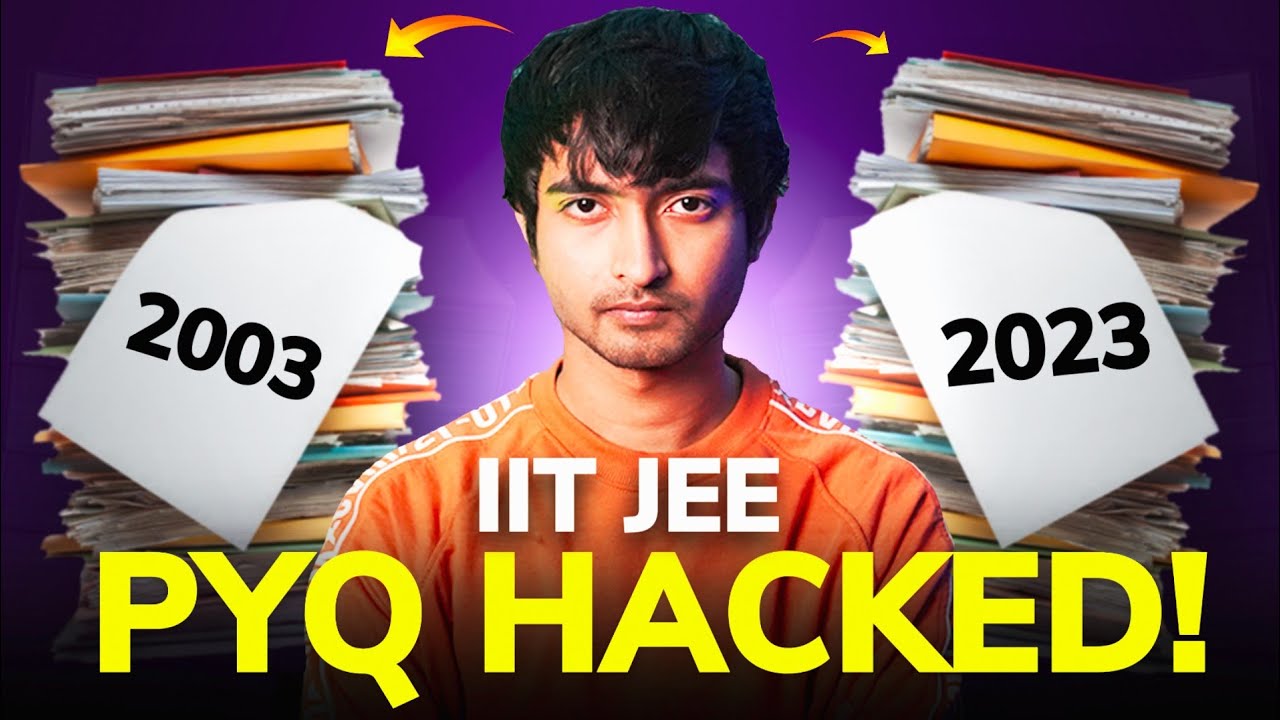CAT Prep Checklist – Are You On Track? | 2IIM
Summary
TLDRThe transcript offers a comprehensive guide for students preparing for competitive exams, emphasizing the importance of self-assessment and strategic study. For Quant, it recommends mastering arithmetic basics before tackling other topics, with a focus on accuracy over quantity. In Verbal, establishing a daily reading habit and analyzing mistakes are crucial. For LRDI, variety in practice and consistent engagement are key. Additionally, mock test analysis should focus on question selection, learning from errors, and overall strategy. The speaker encourages a relentless approach, with conscious adjustments to improve exam performance.
Takeaways
- 😀 Prioritize mastering arithmetic basics before diving into more complex topics like geometry, trigonometry, and functions.
- 😀 Focus on weekly progress by strengthening two to three topics and addressing one gap in knowledge.
- 😀 Accuracy is more important than attempting many questions. Aim for near-perfect accuracy to boost confidence.
- 😀 Build a daily reading habit that includes both leisure and specific reading to improve verbal skills.
- 😀 Analyze wrong answers carefully in verbal reasoning to understand why the right answer is correct and why the wrong one isn't.
- 😀 Stay in touch with LRDA (Logical Reasoning and Data Interpretation) and RC (Reading Comprehension) consistently; avoid long breaks.
- 😀 Practice a variety of question types in LRDA to avoid over-focusing on one puzzle type and diversify your approach.
- 😀 Use mock tests for regular analysis: focus on question selection, learning from mistakes, and evaluating overall strategic approach.
- 😀 Avoid getting caught up in the habit of solving only familiar or easy questions during mocks; focus on improving question selection skills.
- 😀 Incorporate conscious analysis into mock tests to improve approach and strategy, refining your decision-making process in future attempts.
Q & A
What is the first priority in quant preparation according to the speaker?
-The first priority in quant preparation is mastering the basics of arithmetic. If you haven't covered that thoroughly, the speaker advises putting aside more advanced topics like geometry, trigonometry, and inequalities until you are strong in arithmetic.
How should you structure your weekly preparation for quant?
-The speaker recommends focusing on two to three topics each week to get stronger, and also addressing one weak topic to improve on. It's important to reinforce weak areas while continuing to build strength in other topics.
What is more important in quant, accuracy or the number of attempts?
-Accuracy is more important than the number of attempts. The speaker emphasizes that being nearly 100% accurate in solving questions gives you confidence and control over the exam.
What advice does the speaker give regarding verbal preparation?
-In verbal preparation, building a reading habit is crucial. The speaker suggests reading for 45 minutes to an hour daily, with both leisure and specific reading, and also advises analyzing wrong answers carefully to understand why they were incorrect.
How should one approach wrong answers in verbal practice?
-The speaker stresses the importance of analyzing wrong answers. It's vital to identify why the wrong choice was selected and why the right answer is indeed correct, which helps improve accuracy over time.
What is the best approach to LRDA preparation according to the speaker?
-LRDA preparation should be varied, as the speaker highlights that sets in exams rarely fit neatly into predefined categories. Regular practice and exposure to different types of questions are essential. The speaker advises staying in touch with LRDA on a near-daily basis to avoid getting out of touch.
What does the speaker mean by 'variety is the name of the game' in LRDA preparation?
-The speaker is advising not to restrict oneself to only certain types of problems. Instead, practicing a wide range of problems within LRDA will better prepare you for the unpredictability of the exam. It’s important to have a broad skillset in LRDA rather than focusing too much on one specific puzzle type.
How can one avoid the pitfall of focusing too much on one puzzle type?
-The speaker suggests consciously working on puzzle selection, paying attention to which types of puzzles you naturally gravitate towards, and ensuring that you're not repeatedly choosing one type that you’re familiar with, even if it keeps eluding you.
What is the significance of analyzing mocks in the preparation process?
-Analyzing mocks is essential for improving. The speaker divides this process into three parts: question selection, learning from mistakes, and strategic thinking. Each mock should be analyzed to refine these areas and improve performance in future mocks and the actual exam.
What three areas should be analyzed when reviewing a mock test?
-When reviewing a mock test, the three areas to focus on are: 1) Question selection (should you have skipped certain questions?), 2) Learning from mistakes (was the error a silly mistake, a time mismanagement issue, or a lack of knowledge?), and 3) Strategic thinking (overall approach, managing fatigue, and avoiding repetitive mistakes).
Outlines

هذا القسم متوفر فقط للمشتركين. يرجى الترقية للوصول إلى هذه الميزة.
قم بالترقية الآنMindmap

هذا القسم متوفر فقط للمشتركين. يرجى الترقية للوصول إلى هذه الميزة.
قم بالترقية الآنKeywords

هذا القسم متوفر فقط للمشتركين. يرجى الترقية للوصول إلى هذه الميزة.
قم بالترقية الآنHighlights

هذا القسم متوفر فقط للمشتركين. يرجى الترقية للوصول إلى هذه الميزة.
قم بالترقية الآنTranscripts

هذا القسم متوفر فقط للمشتركين. يرجى الترقية للوصول إلى هذه الميزة.
قم بالترقية الآنتصفح المزيد من مقاطع الفيديو ذات الصلة

Class 11 (PCMB): Finish 100% syllabus from JULY-1st🔥 (Will be deleted on 2nd July)

Como estudaria hoje o maior especialista sobre estudos do Brasil? (c/ o Prof. José Mario Chaves)

Top 5 Habits to Become a Topper | NEET 2025 | Akansha Karnwal

ZERO To 680+ Starting From 1st AUGUST ⏩Complete Bio & Chem By December With This NEET 2025 STRATEGY

This INSANE time table helped me crack AIIMS twice - productive routine !

95% Students Solve JEE PYQs Wrongly | How to solve PYQ? #iitjee #jeemains
5.0 / 5 (0 votes)
